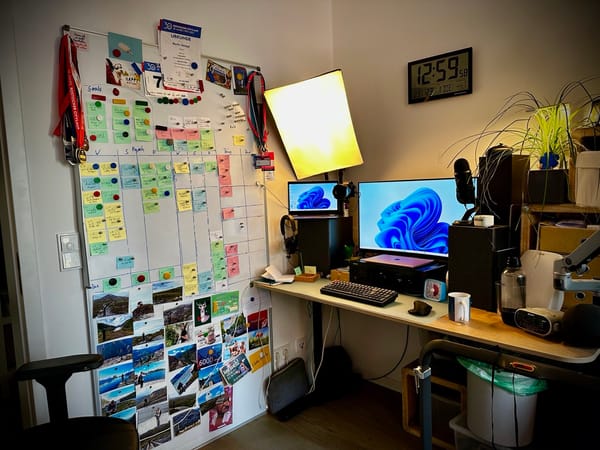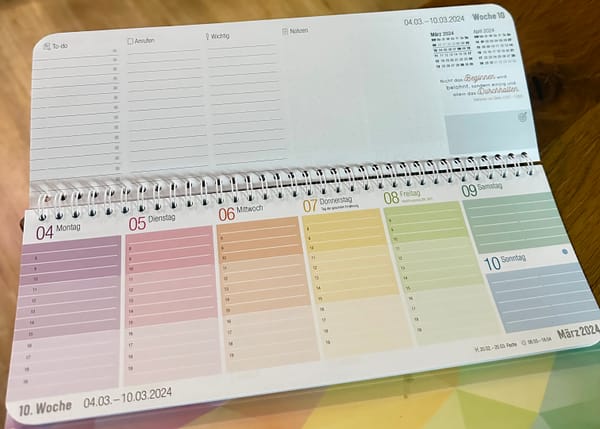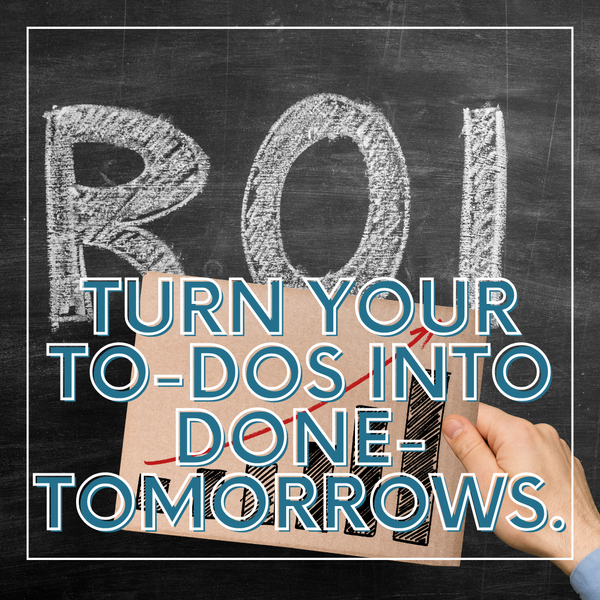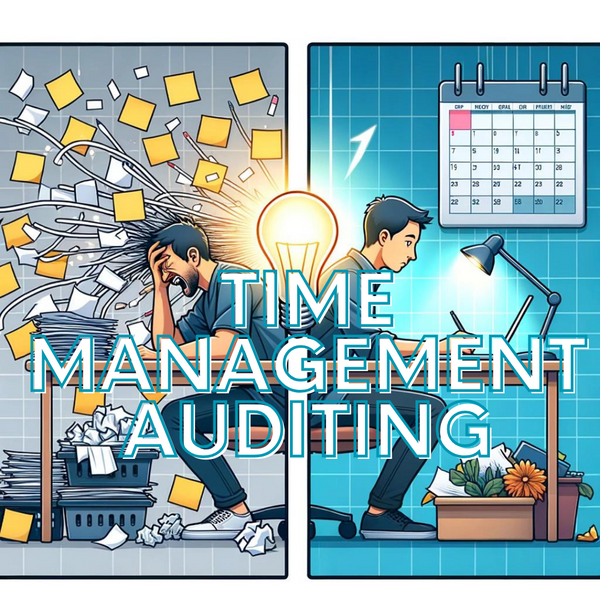Rescuing Your Productivity From the Meeting Monster: Personal Best Practices & Reflections
Rescue your productivity from the meeting monster! Learn how to reclaim your focus and achieve outstanding results. Discover personal best practices to optimize your work routine.
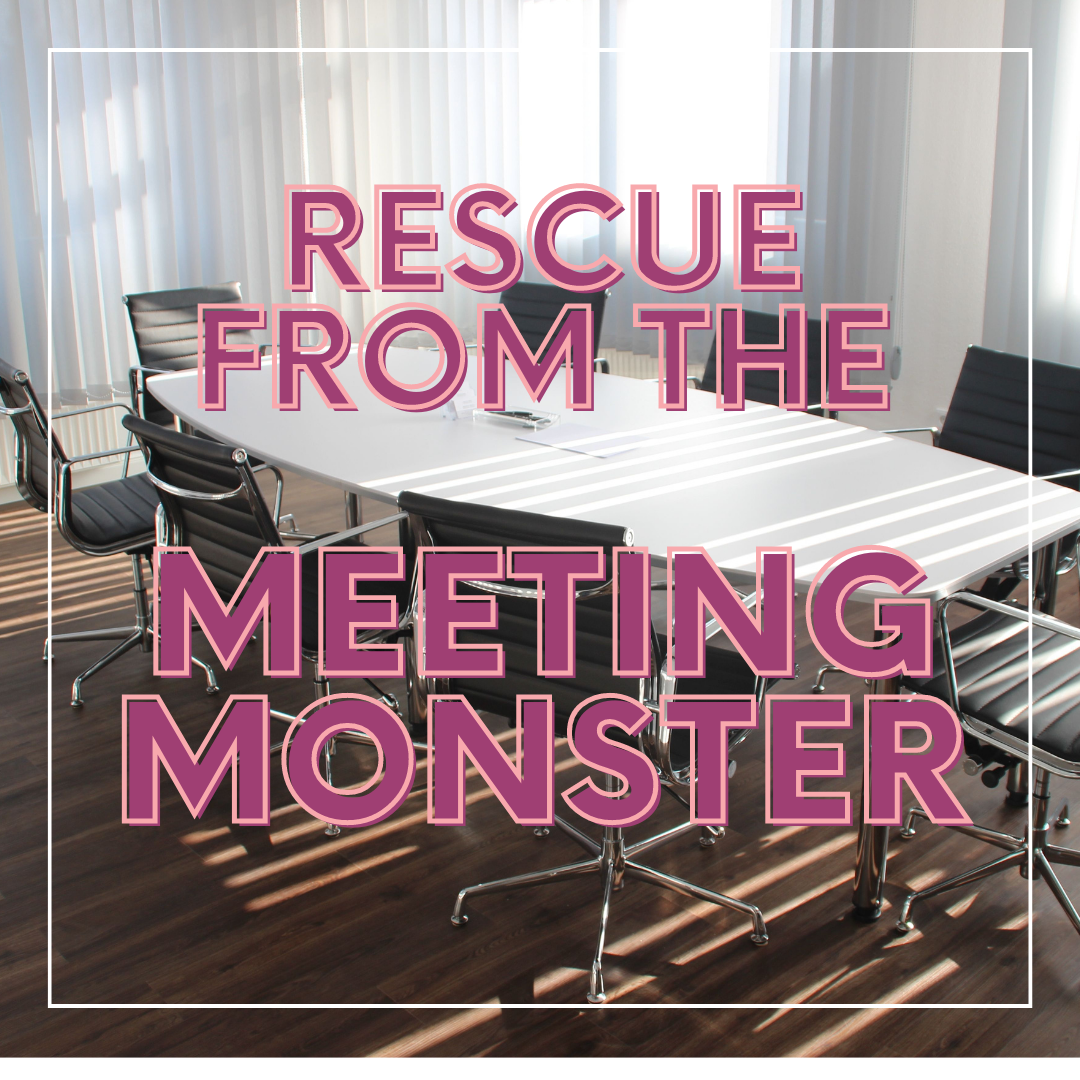
In my early years of work and in various roles (software developer, consultant, project manager), my 40-hour weeks consisted of at least 35 hours of meetings, and I often did my "real work" only on weekends or late at night. I thought this was necessary if I wanted to climb the corporate ladder. The busier, the better. Yes, I have to admit, I was proud of it.
What a misconception! Where did it lead me?
- I gained weight.
- I felt like a robot.
- The quality of my work deteriorated.
- My friends and family didn't get much of my time during that period.
But hey, at least I propelled the company forward with my dedication, right?
No! Being 100% or more "busy" doesn't mean you truly add value to your company and clients.
I implemented productivity tips, but what good is optimizing efficiency when you're working in the wrong direction or on too many things?
Eventually, in my mid-30s, the realization hit me — better late than never — that this couldn't continue. The enemy has quickly identified: meetings! But are meetings really the culprits? Today I know that meetings are just a symptom:
- I often scheduled meetings in situations where I didn't want to make the decision myself or didn't want to think about how to proceed with a topic on my own. This wasted my time and the time of others. Today, I make 80% of the decisions on my own. Do I sometimes make mistakes or confuse colleagues who don't feel involved? Yes. But the damage caused by a decision not made or made slowly is more severe than making a wrong decision and taking a few steps in the wrong direction.
- I thought corporate work meant that everything had to be done participatively. Always invited as many people as possible who could have an opinion or be affected. But where does that lead? Our work topics are so diverse and comprehensive that nearly everyone must be invited to almost all topics. Today, I pay much more attention to clearly defining my mandate and scope of action, and then I reduce coordination to only the truly important things. I choose the participants precisely.
- My calendar, packed with meetings, was also a symptom of my lack of focus. I said "yes" to everything that was thrown my way because I didn't want to be rude and wanted to be perceived as a valuable employee. However, saying "no" is not impolite; it is a strategic decision that everyone should have the right to make within their role and mandate. Look at it this way: If you say "yes" to everything, you dilute your attention across too many topics and will only deliver half-hearted and time-consuming results for each of them. That's not productivity and value creation; it's the exact opposite. The greatest value is created for the company and our clients when we deliver outstanding results with a laser-sharp focus on specific challenges and opportunities. This focus is not provided to you; you have to create it for yourself.
All these insights over the years led to the following meeting best practices that I now live by and continuously develop:
- 09:00 - 11:30 a.m. is "Eat the Frog" time: I tackle my most important task of the day (usually the one that scares me the most, like fear of failure) and aim to accomplish 80% of it during this period. I disable Outlook & Teams, put my smartphone aside, and listen to my favourite music with headphones to eliminate auditory distractions. I do my best to protect my "Eat the Frog" time from meetings. Of course, sometimes I have to deviate from it out of respect for others' time constraints, but that's not so bad. Just having 2 or 3 such mornings is a great success. And the best part? The day already feels like a success by 11:30 a.m.
- 11:30 a.m. - 1:00 p.m. is my "Walk & Talk" speaking time. I go for a walk and invite all the colleagues I used to have routines with to call me anytime during this period (without an appointment). This allows me to combine an hour or more of work time with something healthy: walking. Initially, it confused colleagues, and they believed I would be distracted. In reality, however, I listen much more attentively while walking and often have more creative ideas. Since I started doing this daily, my back pain has also become a thing of the past.
- 1:00 p.m. - 5:00 p.m. is my regular window for appointments. As I am now more focused on my tasks and responsibilities, it is usually sufficient to handle my meeting load without any problems.
- The remaining work time is kept free to discuss spontaneous important matters with colleagues or to work on tasks, emails, and notes.
- I no longer schedule recurring and routine meetings myself and actively question the recurring invitations I receive. I will gladly attend if there is a good, specific reason for each meeting.
- I only take on new tasks and responsibilities if they lie on a critical path for the company or clients and if my capacity allows me to deliver good and fast results. In doubt, the "weakest link" of my tasks should be discarded or delegated.
- I take notes in every important meeting, especially when I'm the one who scheduled it. Many find it annoying to write while talking. Still, it has many advantages: it forces me to listen actively, gives me time to think and organize my thoughts, and allows me to send a summary to other colleagues as a record of the conversation if needed. It doesn't have to be super formal and structured. Simply write down the essential key points in an email or OneNote as brief bullet points. I often share my screen so that colleagues can have a visual overview of the conversation structure or point out if I misunderstood something.
- If a meeting takes an hour, I schedule it for half an hour. Why? There is Parkinson's Law: Tasks often expand to fill the time given to them. In many cases, 30 minutes are sufficient. And if not, you can continue the discussion at another time or resolve the remaining issues asynchronously.
- I block a day of concentration work when I have particularly challenging tasks (e.g., an important client presentation).
- I prepare for every meeting I schedule and share the preparation slides or notes with the participants. Starting with a common understanding allows us to reach results more quickly and avoids wasting time during the meeting. Ideally, it's already the first draft of a work outcome, but if not, it can simply be my own thoughts and considerations quickly written down as bullet points or diagrams.
- Suppose I notice that a conversation in a meeting with >3 people is getting lost because points are repeated endlessly, or the added perspectives don't bring anything new ("There is no red thread"). In that case, I actively address it and motivate everyone to get back on track. In situations where it's inappropriate, I at least hold back my opinion to avoid further complicating the discussion.
- Meetings with >6 people are not meetings but workshops. These need to be consciously planned, prepared, and structured.
- When I have the impulse to schedule a meeting to resolve a problem, I consciously pause and consider alternative ways to find a solution. Often, the problem can be solved directly (without involving others) or through more precise written communication (chat, email).
However, it's clear that we operate in a collaborative ecosystem, and one cannot completely withdraw into solitude. Additionally, different work styles, priorities, and time availability require compromise.
It's good to have a set of ideal meeting and work practices in mind, but it would be a mistake to cling to them stubbornly. It's counterproductive.
It's not about perfection but about having a balanced work routine that includes both meetings (collaboration) and focused individual work.
I hope my examples inspire you, even though not everyone can adopt them exactly as they are.
What are your practices? Write them in the comments!
Best regards,
-- Martin from Deliberate-Diligence.com


